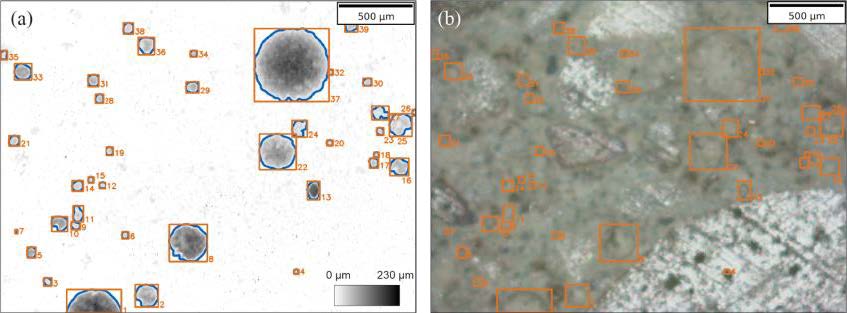AICC
Artificial Intelligence for smart design and testing of cement and concrete
Principal Investigators
Prof. Dr. rer. nat. Daniel Cremers,
Chair of Computer Vision and Artificial Intelligence, Departments of Informatics and Mathematics
Prof. Dr.-Ing. Prof. h.c. Christoph Gehlen,
Chair of Materials Science and Testing, Department of Materials Engineering
Prof. Dr. Alisa Machner,
Professorship for Mineral Construction Materials, Department of Materials Engineering
Project contributors
Viktor Kostic, M.Eng.,
Chair of Materials Science and Testing, Department of Materials Engineering
Schnürer, Luis, M.Sc.,
Professorship for Mineral Construction Materials, Department of Materials Engineering
Project summary
The aim of the AICC Project is to improve existing and develop new testing methods in material science to secure the long-term quality and durability of concrete structures through the adaptation of artificial intelligence techniques. This includes the efficient characterization of the microstructure of concretes and mortars regarding their freeze-thaw resistance by analyzing the air-void content and size distribution. Furthermore, the degree of reaction of supplementary cementitious materials (SCMs) in cementitious systems depending on their chemical composition is examined in order to evaluate their behavior in common and new mixture designs. Standardized methods are time-intensive, tedious and prone to human errors; however, by using current and developing novel machine learning approaches in Computer Vision and Digital Image Analysis, there is great potential to improve their efficiency and validity. In close cooperation of the different disciplines of Materials Engineering and Computer Vision, we will automate the existing and create new testing procedures that enable a fast and reliable evaluation of concrete structures.
Project (preliminary) results
Microstructural analysis:
First results in segmentation and labelling of air-voids in concrete and mortar samples to evaluate their freeze-thaw-resistance using height data from confocal laser scanning microscopy. Furthermore, this technique is used for the creation of training-datasets for Machine Learning applications to create an automatic evaluation method.
Degree of reaction of supplementary cementitious materials:
Synthesis of various glasses mimicking commercial SCMs in different complexity for hydration experiments and further investigations.
Neural-network architectures:
Systematic analysis of existing neural-network architecture topologies beyond supervised learning with the goal of selecting the most appropriate existing ones and creating better novel ones.
Project publications
Schnürer, Luis; Machner, Alisa (2022): Synthesis and Reactivity Testing of Artificial Supplementary Cementitious Materials. 4th International Conference on the Chemistry of Construction Materials, ICCCM 26.-28.09.2022. Karlsruhe, Germany (poster contribution)
